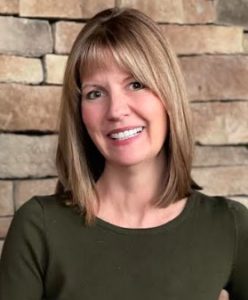This post was originally published on the GiveANote.org blog and republished with author permission.
Music production presents an incredible opportunity to breathe new life into music programs and STEM programs alike. One of the most obvious benefits of teaching music production is fostering high student engagement. Given that teenagers are avid consumers of music in their personal lives, music production is a powerful motivator. Traditional school music offerings (band, orchestra, choir) don’t interest many otherwise music-loving students. Similarly, not all students – more often the girls – do not find the traditional STEM offerings (manufacturing, robotics, engineering) to be of interest. Music production offers students an exciting way to jump into both music and STEM learning like they never have before.
Music production also serves to unite students and departments. It brings music students into technology and technology students into music. When that happens, two distinct groups of students and educators come together to learn and collaborate in ways that they might not have otherwise. What better way to prepare students for the real world than working on an interdisciplinary project with a diverse team to create a product for an authentic worldwide audience?
Not only does music production offer benefits to the students, it offers benefits to the school itself. First, it can be tricky and, at times, contrived to put the “A” for arts into STE(A)M. Music production does this in an authentic manner. Second, for schools seeking to attract and retain students through signature programs, music production offerings help a school distinguish itself from others in a competitive school choice market. Third, what music production students create can be used in a variety of ways across the school – for theatrical productions, for choral performances, for recording the school song, for half-time shows, for student assemblies and the list goes on.
While the prospect of offering music production education may seem daunting, it really doesn’t need to be. Students as early as elementary school can learn music production fundamentals on an iPad. In older grades, students can use the same tools as the pros use. For example, Logic is a recording program used by professional music producers and costs only $200. A good mic and a closet can serve as a recording booth. Many schools already have computer labs, innovation centers or design centers, making music production a natural expansion of the activities and student outcomes already in those spaces. Simpler, yet no less powerful, is having a music producer teach a class as a guest speaker. This is often one of the students’ most memorable lessons. The point is, big investments are not needed to get the learning started.
Here are our top four recommendations for schools:
1. Start by bringing guest speakers into STE(A)M and music classrooms.
Given the world’s newfound familiarity with Zoom, music industry professionals – including music producers – can be guest speakers in classrooms anywhere in the country and world. Students who are talented either musically or technologically get a chance to explore careers they hadn’t ever considered and to gain new skills and knowledge straight from the pros.
2. Offer career exploration opportunities for music students.
This can happen in the course of implementing recommendation #1. For students who plan to pursue a professional music career, being able to produce music is a way to set themselves apart from the competition. Artists, songwriters and session musicians (ie. a session guitar player or keyboard player) who can record their own music will save themselves thousands of dollars. And, of great strategic value, being a producer increases invitations to co-write sessions with other music creators.
3. Start by adding music production units to an existing music, media arts or tech class.
There are lots of readily available online resources to help teachers craft a series of lessons on music production. Many schools already contain much of the technology needed for music production and many students already have the technology in their back pocket already (hint: their cell phone).
4. Sponsor a music production student club.
A motivated group of students, supported by a faculty sponsor, can learn with and from one another using YouTube videos and a plethora of music creation apps. An added bonus: You help like-minded students find one another and connect in a big school where they may feel lost.

Dr. Kelley King is a K-12 educator with 35 years of experience in public and private schools, including 20 years as a school principal. King is the author of three books and her work has been featured on The Today Show, in Newsweek magazine and on National Public Radio. During COVID restrictions, King pivoted quickly to offer an innovative music program to her students. She called on her Nashville-based music publisher daughter to help her recruit songwriters to teach songwriting via Zoom. Wildly popular with students, word traveled fast about the songwriting program and soon other schools were replicating it. Since then, the scope of sessions has grown to include learning about all aspects of the music industry, including music production, music business, session musicianship and more. Now retired from the principalship, King enjoys spending her days helping other schools create joyful and real-world learning experiences in popular music.
- Twitter – @kelleykingsdja
- Instagram – kelleyking8246
- Facebook – kelley.king.73

Emily Falvey is an award-winning Nashville singer/songwriter & an alumna of Belmont University. She is signed to an exclusive worldwide publishing deal with SMACKSongs under Shane McAnally and Josh Osborne. The single Emily penned for MacKenzie Porter, “Seeing Other People,” reached #1 on the Canadian country chart. Other releases include Walker Hayes, Carly Pearce, Tiera, Jake Scott & more. In addition to teaching songwriting classes, Emily leads WRU’s recruitment of top music industry professionals.